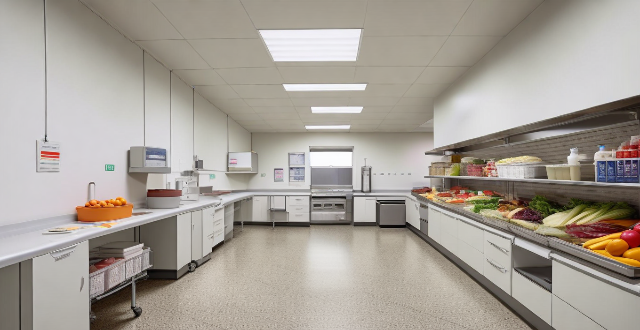The hospitality industry is heavily impacted by safety regulations, which are crucial for maintaining the well-being of both employees and guests. These regulations cover various areas including food safety, fire safety, health and hygiene standards, and employee training. Proper handling, storage, and preparation of food items are essential to prevent foodborne illnesses, while functioning smoke detectors, fire extinguishers, and emergency exits ensure fire safety. Regular cleaning and disinfection of guest rooms, public areas, and workstations maintain high health and hygiene standards, and PPE may be required for certain tasks. Comprehensive employee training on various safety topics is vital for compliance with safety regulations. Overall, adhering to these regulations helps establishments maintain a safe environment and provide excellent service to customers.

The Impact of Safety Regulations on the Hospitality Industry
Safety regulations play a crucial role in the hospitality industry, ensuring the well-being of both employees and guests. These regulations cover a wide range of areas, including food safety, fire safety, health and hygiene standards, and employee training. In this article, we will explore how these safety regulations affect the hospitality industry.
Food Safety
Food safety is a top priority in the hospitality industry. Restaurants, hotels, and other food service establishments must adhere to strict guidelines to prevent foodborne illnesses. This includes proper handling, storage, and preparation of food items. Violations can result in severe consequences, such as fines, closure of the establishment, or even criminal charges.
Key Points:
- Proper Handling: Employees must be trained to handle food safely, including washing hands frequently and avoiding cross-contamination.
- Storage: Food items must be stored at appropriate temperatures to prevent spoilage and contamination.
- Preparation: Cooking temperatures and times must be followed strictly to ensure that food is safe to consume.
Fire Safety
Fire safety is another critical aspect of the hospitality industry. Hotels, resorts, and other accommodation facilities must have functioning smoke detectors, fire extinguishers, and emergency exits. Regular inspections and maintenance are necessary to ensure compliance with fire safety regulations.
Key Points:
- Smoke Detectors: Installed in all guest rooms and common areas to detect fires early.
- Fire Extinguishers: Readily available in key locations for employees and guests to use in case of emergencies.
- Emergency Exits: Clearly marked and accessible for quick evacuation during fire incidents.
Health and Hygiene Standards
Maintaining high health and hygiene standards is essential in the hospitality industry. This includes regular cleaning and disinfection of guest rooms, public areas, and employee workstations. Personal protective equipment (PPE) may also be required for certain tasks, such as housekeeping or food service.
Key Points:
- Cleaning: Regular cleaning schedules should be implemented for all areas of the facility.
- Disinfection: High-touch surfaces, such as door handles and elevator buttons, should be disinfected frequently.
- PPE: Employees should wear appropriate PPE when performing tasks that may expose them to harmful substances or germs.
Employee Training
Employee training is vital in ensuring compliance with safety regulations. Staff members should receive comprehensive training on various safety topics, including food safety, fire safety, and health and hygiene practices. Regular refresher courses should also be provided to keep employees up-to-date with any changes or updates to safety regulations.
Key Points:
- Initial Training: All new employees should undergo safety training before starting their job.
- Refresher Courses: Regular training sessions should be provided to ensure that employees remain knowledgeable about safety regulations.
- Documentation: Training records should be maintained for each employee to demonstrate compliance with safety regulations.
In conclusion, safety regulations play a significant role in the hospitality industry by ensuring the well-being of both employees and guests. By adhering to these regulations, establishments can maintain a safe environment while providing excellent service to their customers.